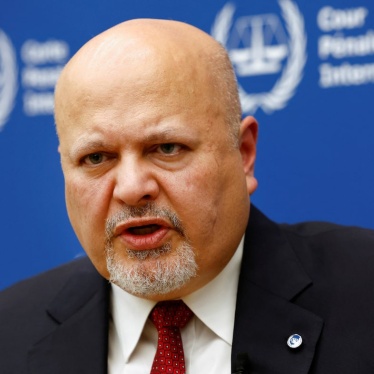On Tuesday (18 June), the German chancellor and the US president will embrace each other. Eyes will be shining as both sides praise the German-American friendship. After all, this visit from Washington is an election campaign present for Angela Merkel, and the president can hope for symbolic pictures to build his own legend.
At the same time, the two of them have an enormous quandary: Obama is dealing with a giant surveillance scandal and Merkel has to tell him off, loudly and clearly, over the spying on German citizens. But to not look like a hypocrite, she also has to ensure her own house is in order.
The recent stories have driven home how dramatic increases in private digital communications and government computing power are fuelling surveillance practices that impinge on privacy in ways unimaginable just a few years ago. All governments, including Germany, need to examine whether surveillance and privacy laws appropriately protect privacy.
Is she going to have the courage and political will to do so? Staying silent when it comes to Germany’s own secret service agencies would not only be an embarrassment, but it would exacerbate the damage to human rights that has already been done by the global American spying scandal.
June has been a dark month for internet freedom.
India rolled out a centralised surveillance system of its own, and Singapore and Jordan initiated new restrictions on online expression. But of all countries, it was the United States, one of the staunchest defenders of human rights, that contributed most to the shock wave. Since the news emerged, autocrats in China, Russia and elsewhere have been rejoicing. Of all countries, it was the United States, the capital of the internet, that spied on internet users around the world.
American security agencies demanded access to their information from the world’s largest Internet companies. They apparently complied, and were apparently gagged from talking about it.
The global citizen is outraged – and rightly so! The US government defends intruding into the private sphere of the global internet community, harming people who did not democratically approve the US law or have much opportunity to seek remedy. To face the global press with the claim that the rights of US citizens have not been infringed upon (an issue on which the verdict is still out), without even mentioning the rest of the world’s population reinforces the shock at such arrogance.
The message seems to be that we know that there are restrictions on what we can do to US citizens but when it comes to the rest of the planet, we’re not subject to such constraint. This position disregards the fundamental principle of human rights: they apply to all.
For now, the reputation of one of the world’s biggest champions of Internet freedom is in tatters. The US wasn’t a perfect advocate, but at times a powerful, courageous and effective one. But now the Americans can no longer expect to point the finger at the Russians, Chinese and others, without being greeted with scornful laughter.
It’s a tale of woe, especially with respect to the global rights of internet users, that Americans had shown particular engagement by joining the Online Freedom Coalition – a group of countries including Sweden, the Netherlands and, recently, Germany, supporting rights to privacy, freedom of expression, and assembly on the internet.
The chancellor needs to make clear she is deeply troubled by the disregard for privacy rights of non-Americans. She should call on President Obama to provide a full, public account of the impact of these policies on the human rights of people outside the US and for some sort of accountability for any harm caused and possible compensation.
But how is Chancellor Merkel going to explain to the US president how to behave in an upright fashion, when Germany has skeletons in its own the closet?
Frank La Rue, the UN special rapporteur on the right to freedom of opinion and expression, says Germany may need to evaluate its own approach to surveillance. In April, he lamented that the vague and unspecific notion of “national security” has become an acceptable justification for the extensive interception of and access to communications. In many cases, national intelligence agencies enjoy blanket exceptions to the requirement for judicial authorisation.
Merkel has to address publicly the homemade faults in the monitoring of citizens in Germany and elsewhere and advocate change.
It is tricky for Germany to present itself as a supporter of freedom of opinion on the internet, while simultaneously permitting autocrats to be supplied with exactly the kind of technology that makes their spying on and silencing of dissenting voices possible.
Obama and Merkel should use the current human rights catastrophe as an opportunity to wholeheartedly support human rights on the internet, and end the disgraceful mass surveillance and data extraction. The Internet has made mass surveillance far easier. It is now time to update national law to ensure these technologies are not turned against the people who use them, both at home and abroad.
Wenzel Michalski is Germany director at Human Rights Watch.





